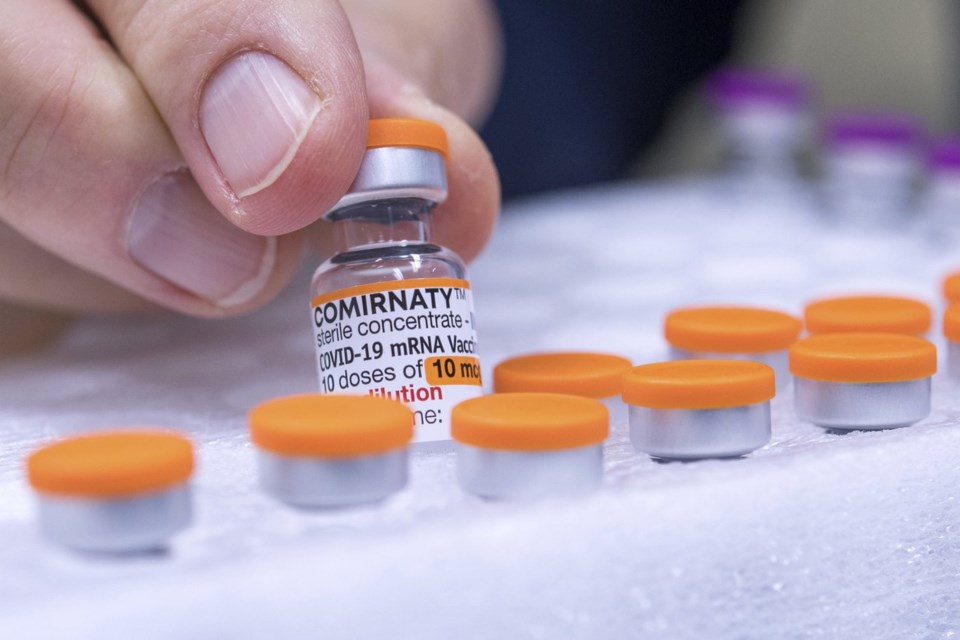WASHINGTON (AP) — The Food and Drug Administration said Wednesday it has expanded existing warnings on the two leading COVID-19 vaccines about a rare heart side effect mainly seen in young men.
Myocarditis, a type of heart inflammation that is usually mild, emerged as a complication after the first shots became widely available in 2021. Prescribing information from both Pfizer and Moderna already advises doctors about the issue.
In April, the FDA sent letters to both drugmakers asking them to update and expand the warnings to add more detail about the problem and to cover a larger group of patients. While the FDA can mandate label changes, the process is often more of a negotiation with companies.
Specifically, the new warning lists the risk of myocarditis as 8 cases per 1 million people who got the 2023-2024 COVID shots between the ages of 6 months and 64 years old. The label also notes that the problem has been most common among males ages 12 to 24. The previous label said the problem mostly occurs in 12- to 17-year-olds.
The FDA’s labeling change appears to conflict with some prior findings of scientists elsewhere in the U.S. government.
The Centers for Disease Control and Prevention previously concluded there was no increased risk of myocarditis detected in government vaccine injury databases for COVID-19 shots dating back to 2022. Officials also noted that cases tend to resolve quickly and are less severe than those associated with COVID-19 infection itself, which can also cause myocarditis.
The FDA announcement came as new vaccine advisers appointed by Health Secretary Robert F. Kennedy Jr. met to debate the continuing use of COVID-19 vaccines for key groups, including pregnant women. It's the first meeting of the CDC advisory panel since Kennedy abruptly dismissed all 17 members of the group, naming a new panel that includes several members with a history of anti-vaccine statements.
The FDA's label update is the latest step by officials working under Kennedy to restrict or undercut use of vaccines. FDA Commissioner Marty Makary and a top deputy recently restricted annual COVID-19 shots to seniors and other Americans at higher risk from the virus. They’ve also suggested seasonal tweaks to match the latest circulating virus strains are new products that require extra testing.
Outside experts said the new warning is the wrong approach.
“They are right to suggest that we need to consider myocarditis risks associated with the vaccine, but what they propose is exactly the wrong solution,” said Dr. Robert Morris, a public health specialist at the University of Washington. “We should be investigating who is prone to myocarditis to see if we can predict and mitigate that risk.”
Makary and several other FDA officials gained prominence during the pandemic by suggesting the federal government exaggerated the benefits of COVID-19 boosters and downplayed serious side effects, including myocarditis.
Before joining the government, Makary and two of his current FDA deputies wrote a 2022 paper that said mandating booster shots in young people would cause more vaccine-related injuries than prevented hospitalizations from COVID-19 infections. The conclusion contradicted that of many leading vaccine and public health experts at the time, including at the CDC.
___
The Associated Press Health and Science Department receives support from the Howard Hughes Medical Institute’s Science and Educational Media Group and the Robert Wood Johnson Foundation. The AP is solely responsible for all content.
Matthew Perrone, The Associated Press



